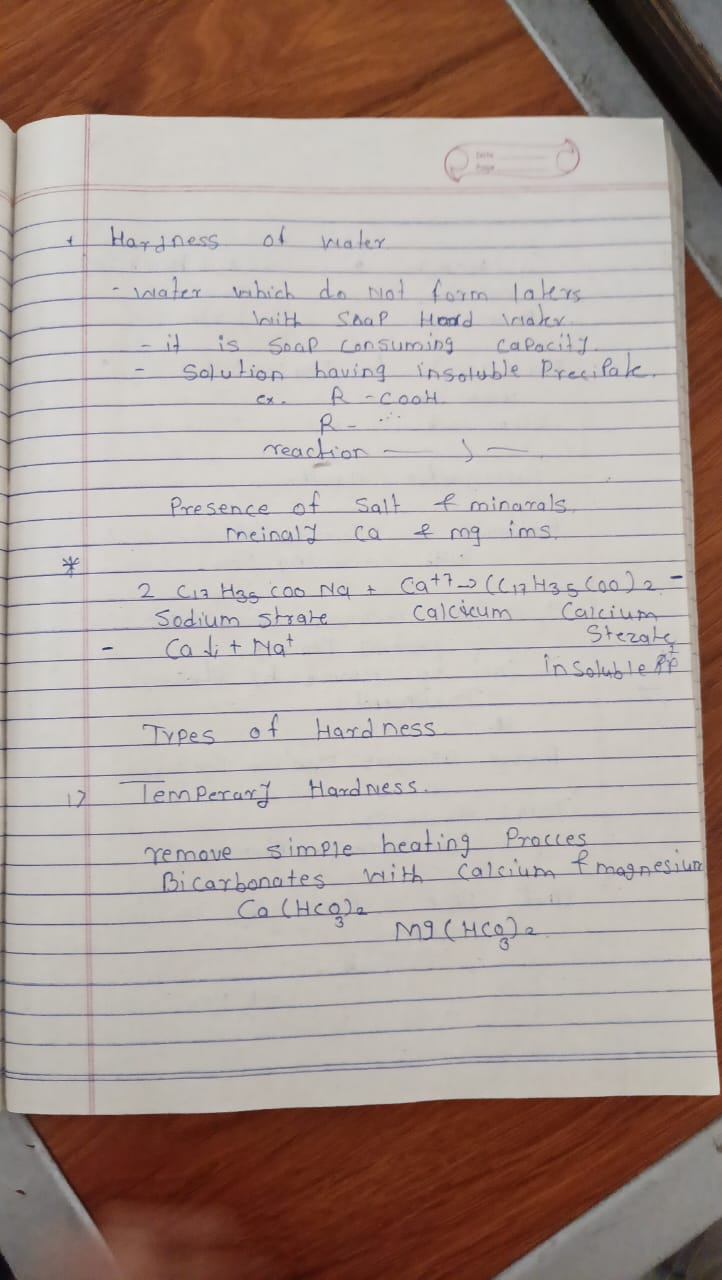What is hardness of water and how can it be removed?

Understand the Problem
The question addresses the topic of the hardness of water, including its definition, causes, types, and how to remove it. It appears to be focused on the chemistry behind water hardness and various reactions involved.
Answer
Water hardness is due to calcium and magnesium. Boil to remove temporary hardness; use ion exchange for permanent hardness.
The hardness of water is due to the presence of calcium and magnesium salts. Temporary hardness can be removed by boiling, while permanent hardness requires methods like ion exchange.
Answer for screen readers
The hardness of water is due to the presence of calcium and magnesium salts. Temporary hardness can be removed by boiling, while permanent hardness requires methods like ion exchange.
More Information
Water hardness is a common issue that affects soap efficiency and can cause scale formation in pipes. Temporary hardness is due to bicarbonates, removable by heating. Permanent hardness, caused by chlorides and sulfates, requires more advanced treatment.
Tips
A common mistake is confusing temporary and permanent hardness; remember, temporary can be boiled away while permanent cannot.
Sources
- Hardness of Water - Types, Remove Temporary and Permanent - byjus.com
- How to Remove Hardness From Water - reynoldspurifiedwater.com
- How To Remove 'Hardness' from Your Drinking Water - springwellwater.com
AI-generated content may contain errors. Please verify critical information